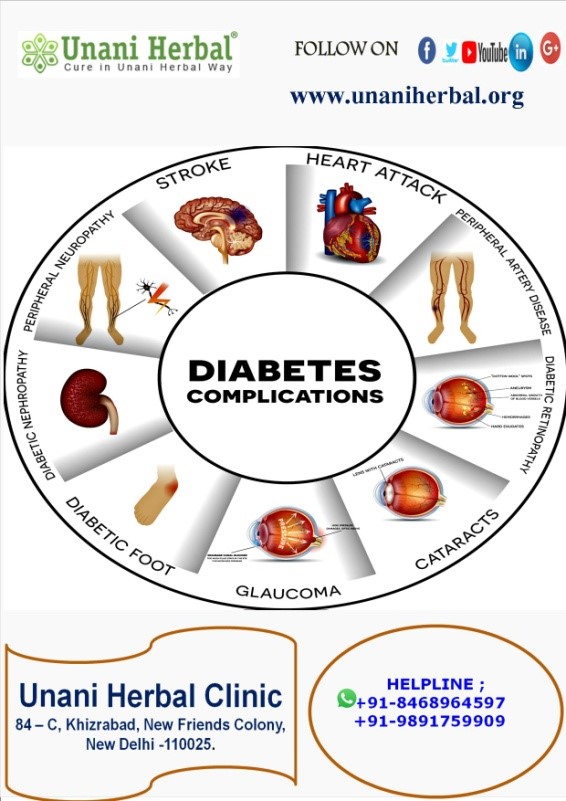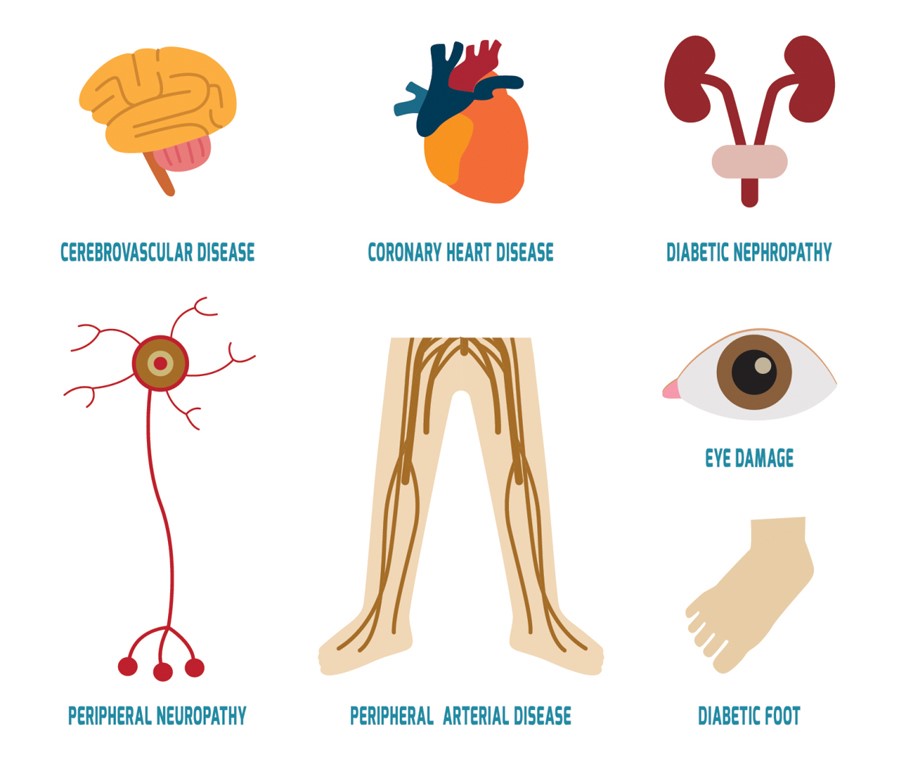Diabetes
Diabetes is a number of diseases that involve problems with the hormone insulin. Normally, the pancreas (an organ behind the stomach) releases insulin to help your body store and use the sugar and fat from the food you eat.
Symptoms of diabetes

- increased hunger
- increased thirst
- weight loss
- frequent urination
- blurry vision
- extreme fatigue
- sores that donít heal
There are two main kinds of diabetes: type 1 diabetes and type 2 diabetes
More than 90% of all people with diabetes have type 2. Overall, more than 3 million Canadians have diabetes, and the number is rapidly rising.
Type 1 diabetes occurs when the pancreas cannot make insulin. Everyone with type 1 diabetes requires insulin injections. Most people are diagnosed with type 1 diabetes during their childhood or adolescent years. Type 1 diabetes occurs most commonly in people of northern European ancestry.
Type 2 diabetes occurs when the pancreas does not make enough insulin or the body does not use insulin properly. It usually occurs in adults, although in some cases children may be affected. People with type 2 diabetes usually have a family history of this condition and 90% are overweight or obese. People with type 2 diabetes may eventually need insulin injections.
Risk factors for the development of type 2 diabetes include
- being 40 years of age or older
- being of Indigenous, Hispanic, South Asian, Asian, or African descent
- blood vessel disease (e.g., damage to blood vessels in eyes, kidneys, nerves, heart, brain, or arms and legs)
- high blood pressure
- high cholesterol
- a history of gestational diabetes
- a history of prediabetes or impaired fasting glucose
- giving birth to a large baby
- certain medical conditions (e.g., HIV infection)
- mental health disorders (e.g., bipolar disorder, depression, schizophrenia)
- acanthosis nigricans (a condition causing darkened patches of skin)
- polycystic ovary syndrome
- obstructive sleep apnea

Some of the signs and symptoms of type 1 and type 2 diabetes are:
- Increased thirst
- Frequent urination
- Extreme hunger
- Unexplained weight loss
- Presence of ketones in the urine (ketones are a byproduct of the breakdown of muscle and fat that happens when there's not enough available insulin)
- Fatigue
- Irritability
- Blurred vision
- Slow-healing sores
- Frequent infections, such as gums or skin infections and vaginal infections
Diabetes complications

- heart disease, heart attack, and stroke
- neuropathy
- nephropathy
- retinopathy and vision loss
- hearing loss
- foot damage such as infections and sores that donít heal
- skin conditions such as bacterial and fungal infections
- depression
- dementia
What health problems can people with diabetes develop?
Over time, high blood glucose leads to problems such as- heart disease
- stroke
- kidney disease
- eye problems
- dental disease
- nerve damage
- foot problem

Nomination form for 2017 Global Awards :
http://www.unaniherbal.org/nomination-form.html
For more information you can also follow us on:

 If you wish to cancel your subscription to this newsletter click here
© Copyright 2014 Unani Herbal
If you wish to cancel your subscription to this newsletter click here
© Copyright 2014 Unani Herbal

